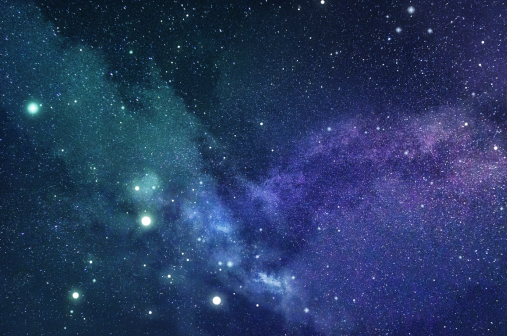
You might not know this but I am a massive space nerd. So when scientists studying data from the James Webb Space Telescope announced last week that they’d found possible evidence of life on another planet, I became instantly wide-eyed and geeky.
This planet is 700 trillion miles, or 124 light years, away from Earth, and all that can be detected is that the chemical composition of its atmosphere may contain molecules associated with life. We have no way of knowing what kind of life this might be, and it’s highly improbable that it would be of the sentient kind. But the very possibility is exciting!
Humans are endlessly fascinated by space. Its sheer vastness makes it full of unknowable possibilities – and novelists, filmmakers and TV producers have imagined whole galaxies into life.
Yet the possibility of other intelligent life forms presents a challenge to Christians. We believe in the fallenness of humankind and our redemption through the birth, life, death and resurrection of Jesus Christ. If there are other worlds out there, would Jesus have to redeem them too? Would he take on their flesh and die multiple times for multiple beings? CS Lewis speculated on this in his Narnia stories: Aslan hints to Lucy in the Voyage of the Dawn Treader that she will get to know him by a different name in our world.
Of course we cannot tell. The Bible tells us what we need to know, not everything there is to know. It focuses on humankind. The vast immensity and complexity of the universe is a reflection of God’s great joy and creativity, and speculation about alien life should not distract us from what we have been called to do in the world here in front of us.
But meditating on the hugeness of the universe has always formed part of our worship of God. In the immensity of God’s creation we are just infinitesimal specks. And yet, God has imbued us with infinite dignity as his image-bearers, worthy of his deepest love and saving grace. In the words of Psalm 8,
“When I consider your heavens,
The works of your fingers,
The moon and the stars,
Which you have set in place,
What is mankind that you are mindful of them,
Human beings that you care for them?”
Reflecting on the universe gives us a healthy sense of perspective that relieves our tendencies towards self-obsession. Since I’ve already admitted to being a nerd, I might as well tell you that I like to keep track of the Voyager 1 mission. It was launched in 1977 and was the first spacecraft to leave our solar system, in 2012. It is the most distant human-made object from Earth. And yet after nearly 50 years in space, it is still not even a light day away. Compare that with the 124 light years between us and this other possible life-sustaining planet, and the mind boggles!
But if there are other sentient beings, then Jesus is surely their Redeemer too and he will make himself known to them. Tom Wright points out that Jesus is the embodiment not just of a local deity but the God who, in the very first sentence of the Bible, created the heavens as well as the earth.
It seems mysterious to us that he chose to enter into a particular time and place on our tiny planet as a helpless baby, when, as Solomon says in 1 Kings 8:27, “the heavens, even the highest heaven, cannot contain” him. But Paul reminds us in Colossians 1 that in Jesus, “all things were created, things in heaven and on earth … He is before all things and in him all things hold together.” And in Ephesians 4:10, we are told that Jesus “ascended higher than all the heavens, in order to fill the whole universe”.
Indeed, it means that God is just as present on that distant planet trillions of miles away – and whatever life forms it may or may not contain – as he is to you and me right here and now. That is simply awesome.
We shouldn’t be afraid of anything we find in the universe, or allow the possibility of discovering other life forms to challenge our faith. His ways are higher than ours. As the 17th century German astronomer and mathematician Johannes Kepler pointed out, scientists are “merely thinking God’s thoughts after him” – and the more we know about science and how God does things, the more blown away we should be by the epicness of creation.
And as we have just celebrated the miracle of Easter amidst a culture that is at best sceptical about the supernatural aspects of the story, let’s remember that a God who can breathe two trillion galaxies into existence will have no trouble with a Virgin birth or a Resurrection. Let’s take some time today to reflect on his awesomeness and praise him that he loves and wants to know each one of us personally.
Tim Farron has been the Member of Parliament for Westmorland and Lonsdale since 2005 and served as the Leader of the Liberal Democrat Party from 2015 to 2017. Tim is also the host of Premier’s ‘A Mucky Business’ podcast, which unpacks the murky world of politics and encourages believers around the UK to engage prayerfully. He is the author of A Mucky Business: Why Christians should get involved in politics."













